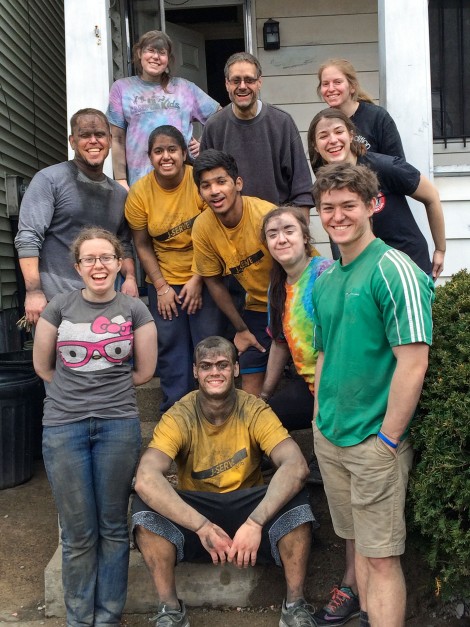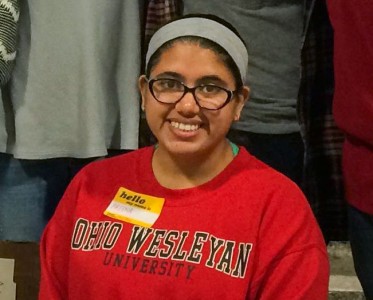
Faith-Based Learning
Travel Experiences Provide OWU Student Lessons about Religion

Two travel-based programs here at Ohio Wesleyan helped me connect issues surrounding religion and race and understand the complexities of how media handles public belief surrounding faith.
During my spring break, I got the opportunity to travel to Pittsburgh and volunteer with Repair the World, a Jewish service organization that works for education and food justice. As part of a mission team, I participated in a hands-on practical intersection of religion and service work and observed how the two interact, or not, in people’s lives.
I made friends and created memories while learning along the way. One evening, we volunteered at The Friendship Circle, a support group for young adults and children with special needs. I was able to observe firsthand how religion comforted and brought people from different backgrounds together.
Right after spring break, I had the opportunity to travel to University of Wisconsin, Madison for a conference titled ‘Reporting on Religion, Media, Belief and Public Life,’ with my advisor, Dr. Paul E. Kostyu, and another student, Gopika Nair. This travel was generously supported by an Ohio Wesleyan Student Individualized Project (SIP) grant.
The one-day conference was an exploration of the intersection of public life, spirituality, and religion and how to handle the same as media personnel. For a journalism major, the conference was especially rewarding. I also had the opportunity to meet television journalist David Gregory and hear him talk about his recent book, “How’s Your Faith? An Unlikely Spiritual Journey.”
My favorite part of the conference was a panel discussion where five presenters talked about how the press covers religion and spirituality. The panelists shared personal experiences as reporters on the religion beat and offered insights into the complexities of religious identities. They also critiqued how media reports on the same, focusing especially on online media.
At a different session, Besheer Mohamed, a senior researcher from Pew Research Center, talked about how to handle data and how the media sometimes manipulates audiences with incomplete information. It was eye-opening to see the different ways (some damaging, too) that data can be interpreted.
At the conference, I had the privilege to learn the theoretical implications of the two crossroads, religion and public life.
I am very grateful to Ohio Wesleyan for both the opportunities and excited to continue learning as I begin my journey as a journalist.
